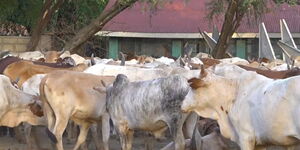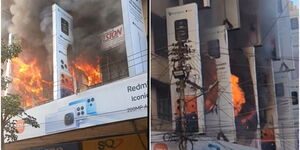The Media Council of Kenya (MCK), on Thursday, issued a 24-hour ultimatum to New York Times (NYT) to pull down gory images from Dusit D2 Hotel attack in Nairobi.
In a statement, the media regulator stated that the publication was unprofessional and disrespected the victims and their families.
MCK also pointed out that it was in bad taste for NYT to justify its actions yet it was the first time to publish gory images from an attack despite having covered those of Europe, Asia and USA for years.
It also demanded an unconditional apology.
“In light of the foregoing, MCK demands that your publication pulls down the insensitive pictures within 24 hours and makes an unconditional apology on the matter.
“It is indeed appaling that despite having covered numerous such attacks in Europe, Asia and US, this is the first time your publication has decided to publish bullet-ridden close-ups,” read the statement.
MCK further disagreed with the media house’s explanation that it had to paint the exact picture of the attack, countering that all they did was glorify the success of the attack.
“MCK vehemently disagrees with your publication position that the objectivity of showing the gory images of dead images from the attack is meant to give readers a clear picture of the horrors of such attacks.
“To the contrary, the images amount to glorifying and parading the “success” of the terror acts,” continued the statement addressed to NYT head of the Nairobi Bureau.
Kenyans had, on Tuesday, taken their grievances online over the media house’s insensitivity in publishing gory images on their publications.
"Take note, in the event the images are not pulled down within 24 hours as requested, MCK will initiate relevant action against your publication not limited to revocation/suspension of accreditation of journalists working with New York Times in Kenya. You are hereby required to inform the council of your action within 48 hours and not later 21st January 2019," concluded the letter.
New York Times, however, responded stating that they understood the pain that was at stake for those affected but explained that they had a duty to show the actual horror and were increasingly reciprocating the practice everywhere.
"In recent years, Times editors have made hard choices — and published similar painful photos — in situations ranging from a shooting in New York City to terror attacks in London and Manchester; to victims of the drug wars in the Philippines; to war and famine in Syria and Yemen; and many others," wrote New York Times Associate Managing Editor for Standards, Phil Corbett.
They refuted claims that their twitter account was suspended as a result. The one in question was suspended three years ago.












